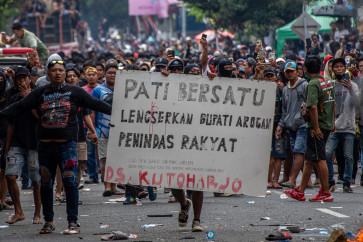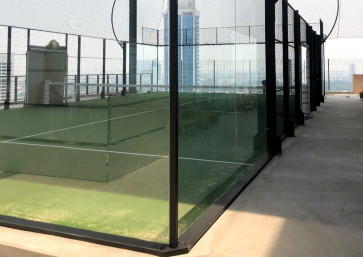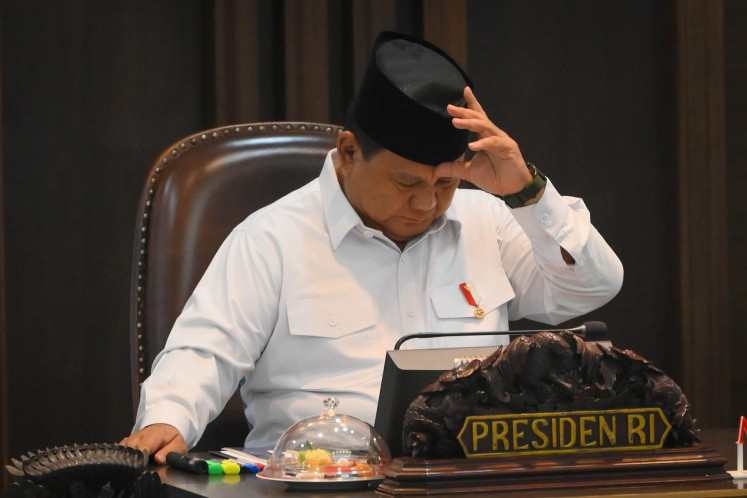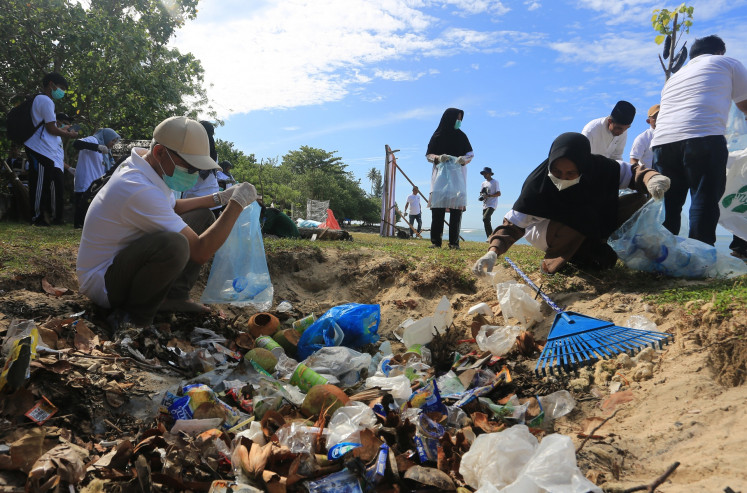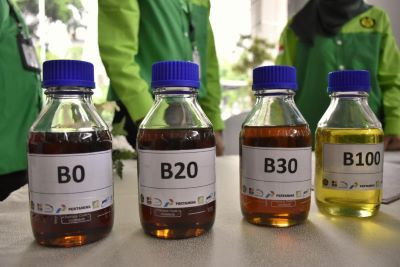Popular Reads
Top Results
Can't find what you're looking for?
View all search resultsPopular Reads
Top Results
Can't find what you're looking for?
View all search resultsSigns of a cartel behind garlic price hike
The Business Competition Supervisory Commission (KPPU) on Tuesday began hearing evidence about alleged cartel practice by several garlic importers, which pushed the price up a few months ago
Change text size
Gift Premium Articles
to Anyone
T
he Business Competition Supervisory Commission (KPPU) on Tuesday began hearing evidence about alleged cartel practice by several garlic importers, which pushed the price up a few months ago.
In the first hearing, the agency's team of investigators revealed that the cartel was conducted by three groups of affiliated garlic importers to fix the prices and manage domestic supply.
The first group of importers comprised 13 firms ' including CV Bintang and CV Karya Pratama, CV Mekarjaya and PT Dakai Impex ' that controlled 23,518 tons, or 56.8 percent of the overall garlic import quota between November 2012 and March this year. The second group and third group each consisted of three firms and accounted for 5,515 tons (14.03 percent) and 3,217 tons (10.67 percent) of garlic, respectively.
'The allegation that the firms arranged the supply and distribution of garlic to fix prices through setting the time frame of importation has been fulfilled,' Muhammad Nur Rofik, the chief investigator, said during the hearing presided over by commissioner Sukarmi.
The price of the key ingredient jumped dramatically by nearly seven-fold to a record high of Rp 70,000 (US$6.82) per kilogram during the January-March period due to supply shortage.
The dramatic rise amid the scarcity of domestic stocks contributed significantly to monthly inflation in the first months of this year.
In March, a shortage of garlic, along with shallots and chili, pushed up year-on-year inflation to 5.9 percent, breaking the central bank's target of 5.5 percent.
Apart from the alleged price fixing by importers, the antimonopoly body also found alleged involvement of policy makers that issued import recommendation and permits ' the Agriculture Ministry's Quarantine Agency and the Trade Ministry's directorate general.
Under horticulture importation rules, the Agriculture Ministry, particularly it's agency, is authorized to issue certificates of clearance on imported horticulture produce after various sanitary and phytosanitary checks, while the Trade Ministry has the final say in the issuance of permits for eligible importers.
The investigation team's findings state that the Quarantine Agency issued clearance permits for 14 importers, including CV Bintang, PT Dakai Impex and PT Dwi Tunggal Buana, despite inconsistent recommendations and licenses from the agriculture and trade ministries.
In addition, the investigators said the Trade Ministry refused to issue permits for competitors, thereby, restricting imports enough to push down the price at a time when the local market was still experiencing a shortage of garlic.
Farid Helingo, the director of PT Lintas Buana Unggul, denied that his firm collaborated with other importers to manage garlic supply and fix the price or had affiliations with other importers.
'The price skyrocketed due to the government's policy. When the government removed the import quota, the price declined immediately,' he told reporters after the hearing.


